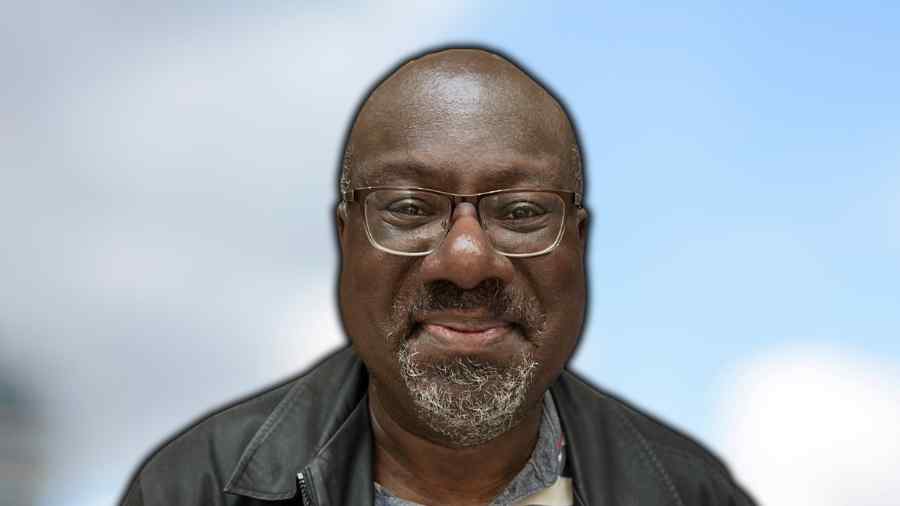Anthony Reddie: The Voice of Black Theology and Decolonial Faith in Modern Britain

Anthony Reddie is a pioneering figure in the landscape of modern theology, known not only for his scholarly contributions but also for his fearless engagement with questions of race, faith, power, and liberation. As a British theologian of Caribbean heritage, Reddie has spent his life challenging the long-standing colonial legacies embedded in Western Christianity. His work bridges academic theology and real-world practice, ensuring that faith speaks directly to the lived experiences of marginalised communities.
Born in Bradford, West Yorkshire, in 1964, Reddie grew up within a family shaped by the Windrush generation—a wave of Caribbean migrants who arrived in post-war Britain seeking opportunity but often met discrimination and systemic racism. This personal background became the foundation of his theological vision: a commitment to centring Black voices and experiences within Christian thought. Today, Professor Anthony G. Reddie stands as one of the leading voices in Black theology, working as a Professor at Regent’s Park College, University of Oxford, and Director of the Oxford Centre for Religion and Culture.
Early Life and Education
Anthony Reddie’s journey began in a working-class Caribbean household in Bradford, where faith and social justice were integral parts of daily life. He studied History at the University of Birmingham, where his interest in how religion shapes culture and power began to deepen. Later, he pursued a PhD in Education with a focus on theology, under the supervision of the late Professor John Hull. His doctoral research explored how theology and education can be tools for empowerment among oppressed and marginalised communities—a theme that would define his career for decades.
The Roots of Black Theology
To understand Reddie’s work, it is essential to grasp the essence of Black theology. Emerging in the United States during the civil rights era, Black theology is rooted in the idea that Christianity must be a force for liberation rather than oppression. It argues that any interpretation of the Gospel that ignores the plight of the oppressed is incomplete.
In the British context, Reddie adapted and expanded these ideas to reflect the realities of African and Caribbean communities facing racism, exclusion, and identity crises in post-colonial Britain. His approach emphasises participation, dialogue, and lived experience—what he often calls a “practical theology of liberation.” He believes theology must begin not in libraries or ivory towers, but in the everyday struggles of those who are silenced or unseen.
Academic Career and Major Roles
Reddie’s career is deeply intertwined with both academia and grassroots movements. He currently serves as Professor of Black Theology at Regent’s Park College, University of Oxford, and is also an Extraordinary Professor of Theological Ethics at the University of South Africa. These roles illustrate the global reach of his scholarship, connecting the struggles of Black people in Britain with those in Africa, the Caribbean, and beyond.
He is also the long-standing editor of Black Theology: An International Journal, one of the most respected academic platforms for exploring the intersections of theology, race, and identity. Through this role, Reddie has supported countless emerging scholars, ensuring that Black theological voices continue to grow and flourish across the world.
Theological Vision and Central Themes
At the heart of Anthony Reddie’s theology lies a radical insistence that Christianity must confront its own history of complicity in racism and empire. He challenges believers to move beyond colour-blind faith, arguing that to ignore race is to ignore the suffering that still defines the lives of many Christians of African descent.
In his influential book Is God Colour-Blind?, Reddie asks a bold question: can Christians truly claim that God transcends race when the church itself has so often reinforced racial hierarchies? His answer is equally daring—God is not colour-blind; rather, God recognises and affirms the beauty of all racial identities. The problem lies not in seeing colour but in using it as a basis for domination.
Another major theme in his work is the need for participatory theology. For Reddie, theology should not be reserved for priests, academics, or theologians. Instead, it should emerge from the everyday lives of people who experience oppression, injustice, and inequality. This approach transforms theology into a shared act of liberation—an ongoing dialogue between the sacred and the social world.
Decolonising Theology
Reddie’s mission to decolonise theology is central to his contribution to modern thought. He argues that much of Western theology remains shaped by colonial worldviews that prioritise white European perspectives. To truly liberate Christian thought, these colonial frameworks must be dismantled.
His work invites the church to re-imagine itself as a community of equals, where those once marginalised now have the power to interpret Scripture, define doctrine, and lead spiritual life. In this sense, Reddie’s theology is not simply academic—it is revolutionary. It calls for a transformation of both belief and behaviour, reminding believers that the heart of the Gospel lies in justice, inclusion, and love for the oppressed.
Notable Works and Publications
Anthony Reddie’s bibliography is vast, but several books stand out for their influence and originality.
- Nobodies to Somebodies: A Practical Theology for Education and Liberation (2003) – This groundbreaking work explores how theology can be a force for empowerment among marginalised communities, especially within education.
- SCM Core Text: Black Theology (2012) – A comprehensive exploration of Black theology in Britain, combining rigorous scholarship with practical application.
- Is God Colour-Blind? (2009, republished 2020) – Perhaps his most famous work, this book dismantles the myth of racial neutrality in Christianity and calls for an embrace of diversity as divine.
- Theologising Brexit: A Liberationist and Postcolonial Critique (2019) – A bold examination of how Brexit revealed deep racial and colonial anxieties within British society, viewed through the lens of faith.
- Journeying to Justice (2017) – Co-edited with other scholars, this collection examines the anti-slavery legacy and contemporary racial struggles within the Baptist tradition.
Each of these works weaves together theology, history, and activism. Reddie’s writing style is clear and direct, avoiding abstract jargon while speaking powerfully to both scholars and ordinary readers.
Awards and Recognition
Reddie’s contributions have not gone unnoticed. In 2020, he received the Lanfranc Award for “exceptional and sustained contribution to Black theology in Britain and beyond.” He also earned an “A Rating” from the South African National Research Foundation, marking him as a leading international researcher—the first Black theologian in his field to receive such recognition.
His achievements reflect not only academic excellence but also a deep moral commitment to justice. Through decades of teaching, writing, and mentoring, Reddie has built bridges between theology and social change, ensuring that faith remains relevant to the challenges of the modern world.
Theology and Social Justice
For Anthony Reddie, theology is not an abstract pursuit but a moral responsibility. He consistently argues that faith without justice is meaningless. His theology demands engagement with real social issues—racism, poverty, inequality, and exclusion.
He works closely with churches and community organisations, helping them to re-examine their structures and practices. His workshops often involve creative exercises, drama, and storytelling—methods that empower participants to reflect on their experiences and challenge oppressive patterns. This practical dimension sets Reddie apart from many theologians; he is as much an educator and activist as he is a scholar.
Global Influence and Legacy
While Reddie’s work is deeply rooted in the British context, its implications are global. His approach has inspired scholars and church leaders across Africa, the Caribbean, and North America to rethink the role of theology in a post-colonial world. He bridges academic theory and lived reality, proving that theology can be both intellectual and transformative.
He also represents a broader movement within the academy—one that calls for diversification and inclusion of voices historically excluded from theological discourse. His influence reaches beyond the classroom, shaping public conversations about race, religion, and national identity in the twenty-first century.
Impact on Modern Christianity
Modern Christianity, especially in Europe, faces the challenge of remaining relevant in increasingly diverse and multicultural societies. Reddie’s work offers a roadmap for renewal. By urging the church to confront its colonial past and embrace the diversity of its believers, he paves the way for a more authentic and inclusive faith.
His message resonates particularly strongly in Britain, where the legacy of empire continues to shape racial and cultural dynamics. In this setting, Reddie’s theology speaks directly to the heart of the modern church, reminding it that the Gospel’s true power lies in love that liberates rather than controls.
The Man Behind the Mission
Despite his academic stature, Anthony Reddie remains grounded and approachable. Those who have studied under him describe a teacher who listens deeply, values lived experience, and challenges others to think critically about faith and society. His passion for justice, coupled with his humility and humour, has made him one of the most respected voices in contemporary theology.
Beyond his lectures and books, Reddie often participates in public debates, seminars, and interfaith dialogues, contributing to discussions about ethics, race relations, and the decolonisation of education. He embodies the principle that theology must be public, engaged, and transformative.
Conclusion
Anthony Reddie’s legacy is that of a theologian who refused to separate faith from justice, intellect from empathy, or theology from the streets. Through his bold writings and visionary teaching, he has reshaped the way Britain—and the wider world—thinks about God, race, and humanity.
By centring the experiences of Black and marginalised communities, he has reclaimed theology as a tool for liberation rather than oppression. His life and work remind us that true theology must not only interpret the world but also seek to change it.



